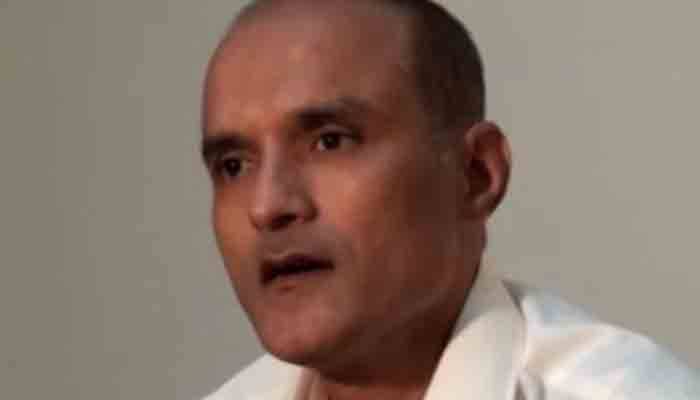The ICJ verdict
Shares

The International Court of Justice (ICJ) at Hague announced its verdict in the Kulbhushan Jadhav case on July 17, rejecting the Indian plea for the annulment of the decision awarding death sentence to him, and for ordering his release and repatriation to India. The decision represents a legal and diplomatic triumph for Pakistan and indicates how well the case was contested under the given circumstances.
Jadhav, a serving commander in the Indian Navy, was arrested on March 3, 2016 in Balochistan while crossing over from Iran. He was found in possession of a valid Indian passport with a fake name. During the investigation, Jadhav confessed that RAW was involved in destabilizing Pakistan and he was a serving officer of the Indian Navy working in Pakistan at its behest. He also acknowledged that he launched a covert operation against Pakistan from the Iranian port of Chahbahar for which he used to get instructions from the joint secretary of RAW. Kulbhushan also admitted that he had been directing various activities in Karachi and Balochistan on directions from RAW since 2013 and had a role in the deteriorating law and order situation in Karachi.
In light of his confession, he was tried in a military court where he was provided with the required legal assistance. However, having found him guilty of the charges against him, the court martial awarded him death sentence on April 10 2017. During that period India had been asking for consular access to Kulbhushan in light of the Vienna Convention; this was denied as Pakistan felt that it was not applicable in the cases of spies. However, on humanitarian grounds, Pakistan allowed the mother and wife of the Indian spy to meet him at the Ministry of Foreign Affairs in Islamabad.
In May 2017, India approached the International Court of Justice (ICJ), asserting that Pakistani authorities were denying India its right of consular access to Jadhav in violation of the Vienna Convention on Consular Relations 1963; India also pleaded for the court to quash the sentence, secure Jadhav’s release and repatriation to India. The ICJ proceedings began in The Hague on May 15 to review the case. India and Pakistan both sent their legal teams to put forward their arguments. On May 18, 2017, the ICJ stayed the hanging of Jadhav. After the halting of the execution by the ICJ, India made two written submission to the ICJ and Pakistan accordingly gave rejoinders to them. The final hearing of the case was held on February 18-21, 2019.
In its submissions to the ICJ and rejoinders to the Indian stance, Pakistan maintained that consular access stipulated in the Vienna Convention was not obligatory in such criminal cases and also quoted the Agreement on Consular Access dated May 21, 2008 between the two countries which allowed each state to consider a request for consular access on its merit in a case involving national security. Pakistan also made mention of customary international law to reinforce its argument regarding denial of consular access.
In response to the Indian plea to the ICJ to annul the punishment awarded to Kulbhushan Jadhav, Pakistan referred to previous decisions concerning death sentences imposed by the US in similar cases in which the court had made it clear that it was not a court of criminal appeal and the presence of effective review and reconsideration by domestic courts was an appropriate remedy, even if a breach of the right to consular access had been established.
Though the verdict given by the ICJ has not accepted Pakistan’s view on consular access, the take on conviction and remedial mechanism as pointed out by Pakistan has been duly upheld. The ICJ said that even though it had found Pakistan in violation of Article 36 of the Vienna Convention on Consular Relations “it is not the conviction and sentence of Mr Jadhav which are to be regarded as violation of Article 36 of the Vienna Convention”. The court noted that Pakistan had acknowledged that the appropriate remedy in the present case would be effective review and reconsideration of the conviction and sentence. The effective review and reconsideration of the case ordered by the court under Pakistani law quoting the Peshawar High Court decision regarding review on sentences awarded by the military courts is in conformity with the stand taken by Pakistan.
The ICJ has also ordered suspension of the death sentence till the completion of that review process by the courts of law in Pakistan which is also allowed by our law and the constitution. As is evident, the substantive part of the verdict upholds and corroborates Pakistani position in regards to the procedure adopted for trying Kulbhushan and the legitimacy of the sentence awarded to him. The Indian media and government may interpret the ICJ order as their victory but the fact remains that it has received a rebuke from the court. The review will be made by the Pakistani courts in accordance with the law and the ICJ will have nothing to do in case the Pakistani courts also uphold the sentence awarded to him by the military court or order otherwise. Foreign Minister Shah Mahmood Qureshi is right on the money to say that the ICJ verdict is a victory for the country.
The verdict of the ICJ is also reflective of its faith in the justice system of Pakistan. It is noteworthy that the court has neither disputed the Pakistani claim of Kulbhushan being an Indian spy nor accepted the Indian plea that his trial in the military court was unfair.
